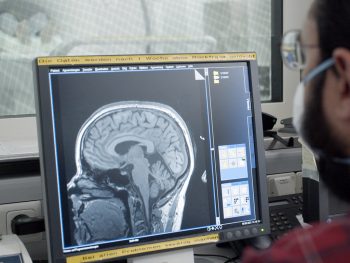Ford is working with neuroscientists to develop a faster and more effective way to detect when drivers are tired, distracted or not concentrating.

The research is being conducted to identify brain responses that reveal lapses in concentration and match the scans to their physical manifestations – such as changes in heart rate or breathing. This would then mean that wearable technology could detect warning signs and the vehicle could then alert the driver.
The research, conducted with Uniklinik RWTH Aachen in Germany, could enable driver monitoring to advance an important step further and help ensure a smooth transition to driving vehicles with advanced driver assistance features.
“The brain processes huge amounts of information when we are driving, but that may change as driver assistance technologies do some of the driving for us. Drivers also get tired and their minds can wander. Identifying more quickly when this happens could be of critical importance,” said Stefan Wolter, research engineer, Research and Advanced Engineering, Ford of Europe.
Driver fatigue is believed to be a contributing factor in up to 25% of fatal and serious road incidents, and a survey shows that 40% of drivers in Europe do not follow the recommended practice of taking a break every two hours on long journeys.
But it’s crucial that drivers remain alert behind the wheel, ready to respond to situations as they arise and be able to override driver assistance technologies when required.
“We believe that by capturing this data we could one day be able to generate unique physiological driver fingerprints so that drivers of the vehicles of the future can be prepared to react and to intervene immediately in case it is required,” said Professor Klaus Mathiak, head of Psychoneurobiology and lead consultant for Psychosomatic Medicine, Uniklinik RWTH Aachen.

